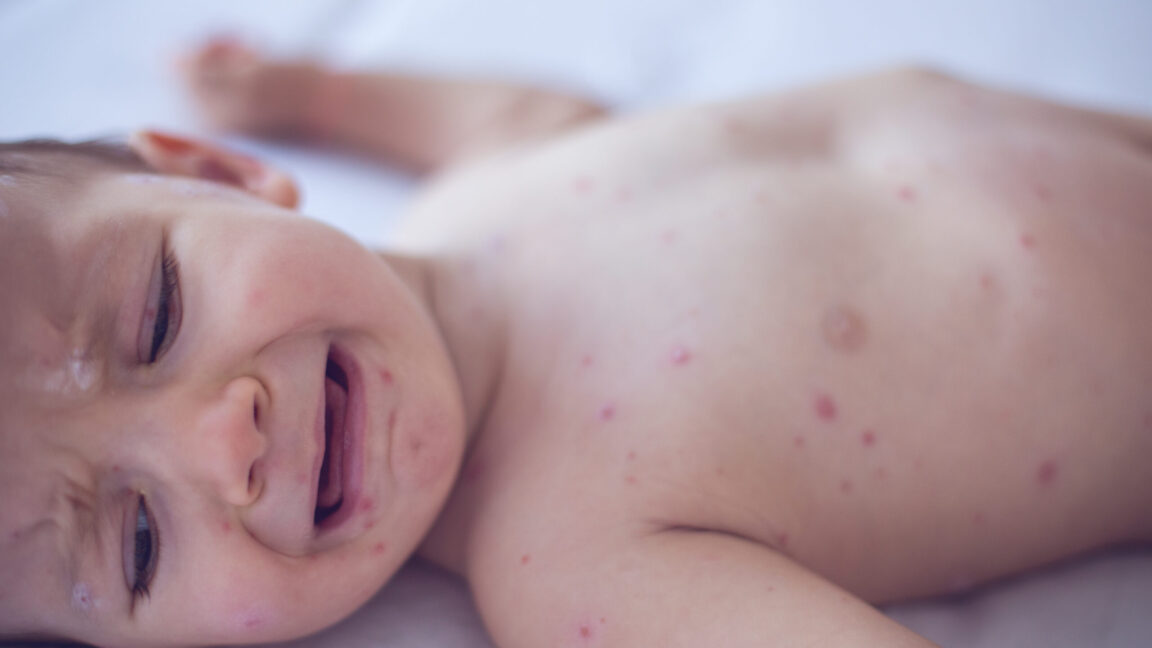With measles declared eliminated from the US in 2000 and national herd immunity strong, health experts have recommended that American children get two doses of the Measles, Mumps, and Rubella (MMR) vaccine—the first between the ages of 12 and 15 months and the second between the ages of 4 and 6 years, before they start school.
Before 12 months, vulnerable infants in the US have been protected in part by maternal antibodies early in infancy as well as the immunity of the people surrounding them. But if they travel to a place where population immunity is unreliable, experts recommend that infants ages 6 to 11 months get an early dose—then follow it up with the standard two doses at the standard times, bringing the total to three doses.
The reason they would need three—and the reason experts typically recommend waiting until 12 months—is because the maternal antibodies infants carry can interfere with the vaccine response, preventing the immune system from mounting long-lasting protection. Still, the early dose provides boosted protection in that 6-to-11-month interval.
In the past, this early, extra dose was recommended for infants traveling internationally—to countries that hadn’t achieved America’s enviable level of herd immunity and were vulnerable to outbreaks. But now, with US vaccination rates slipping, herd immunity becoming spotty, cases rising by the day, and outbreaks simmering in multiple states, the US is no longer different from far-off places that struggle with the extremely infectious virus.
In an article published today in JAMA, prominent health experts—including former Centers for Disease Control and Prevention Director Rochelle Walensky—call for the US to update its MMR recommendations to include the early, extra dose for infants who are not only traveling abroad, but domestically, to any areas where measles is a concern.
“With some local immunization levels inadequate to avert outbreaks and ongoing disease spread in various regions of the country, a dichotomy between domestic and international travel is not appropriate,” the experts write. “For many travel itineraries, there may even be a higher risk of measles exposure at the US point of departure than at the international destinations.”
Vaccinating at-risk infants early is critical to their own health—as well as the people around them, the experts note. “[I]nfants younger than one year face a heightened risk of severe measles-related complications such as pneumonia, encephalitis, and death. Younger infants are also at increased risk of developing subacute sclerosing panencephalitis (SSPE), a rare measles complication that has a high fatality rate and may surface years after initial infection,” according to the experts.

